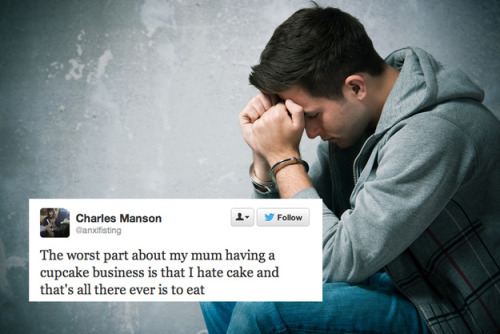Tudo começou quando a leitora do Come-se Júlia foi lá no sítio com a família. Sua sogra, Dona Maria, comentou que antigamente tiravam-se manchas de roupas usando folhas de mamão esmigalhada sobre a roupa molhada a quarar, sempre molhando, virando de lado, não deixando secar. Depois bastava tirar as migalhas de folha e enxaguar. Perguntei se podia bater a folha no liquidificador, já pensando em simplificar a vida? E se em vez de ficar molhando a roupa para o sol não secar a gente botasse a roupa amarela dentro de um saquinho plástico? E se isto e se aquilo? Ela não sabia responder porque naquele tempo era do jeito que falou. Fiquei com aquilo na cachola. No outro dia, assim que o sol nasceu, botei roupas para quarar do meu modo pensado. Peguei toalha de mesa e pano de prato com manchas e coloquei dentro de sacos imersos num suco feito com folhas de mamão e sabão batidos no liquidificador. Assim que o líquido esquentou, a cor verde sumiu. Virei o saco e deixei o sol agir do outro lado. De fato, os panos clarearam.
 |
| Primeiro teste |
 |
| Agora sempre uso em roupas brancas - bato com sabão e jogo sobre as roupas que deixo sob o sol |
Mas antes disso, enquanto batia as folhas fiquei pensando na razão. Claro, deve ser por causa da papaína, que é uma enzima proteolítica - que quebra proteínas. Toda a planta do mamão tem papaína, assim como outras substâncias. Entre as enzimas proteolíticas há não só a papaína mas também a quimopapaína e papayproteinasa omega. Mas vamos pensar na papaína. Pensei nas utilidades da papaína como limpador de feridas, nas folhas usadas milenarmente para embalar carnes duras de caças a serem cozidas para torná-las mais macias, na seiva do mamão verde (que é um concentrado de papaína) que quando cai na córnea pode cegar, na papaína sobre machucados que faz arder, no mamão consumido por quem tem ferimentos na mucosa e que aumenta o estrago, no poder das enzimas proteolíticas sobre a proteína do leite e da gelatina. Gelatina de abacaxi, que também tem enzima proteolítica, a bromelina, só se faz com a fruta cozida, que inativa a enzima, se não a gelatina não gelatiniza. E a gente só tem aftas quando come abacaxi porque ele é ácido e tem a bromelina - o ácido torna a mucosa mais sensível à enzima. Se a fruta é só ácida e não tem esta enzima ou se tem a enzima mas não é ácida, não causa aftas - exemplos: limão e mamão. Um é bem ácido e o outro tem papaína. Nenhum dos dois causam aftas porque não tem as duas coisas juntas. Já kiwi tem os dois. Abacaxi também.
Tudo isto pra chegar à conclusão, enquanto coava o suco verde, de que se estas enzimas proteolíticas não destroem a proteína da nossa pele íntegra mas come a carne quando a ferida está aberta ou as proteínas expostas. Esta é uma visão bem simplista, digamos. Mas foi tudo o que me veio à cabeça no momento de decidir aplicar o resto daquele suco verde sobre os pulgões das couves. Vai que os pulgões sejam muito mais permeáveis que nós? Se a mucosa do nosso olho é sensível à seiva do mamão, vai que os pulgões, feitos de proteínas, sejam todos como mucosas expostas? Bem, não custa tentar.
 |
| A esquerda, água. À direita, suco de folha de mamão |
 |
| Com água, os pulgões se safaram, saíram do prato |
 |
| Com suco de mamão, extermínio completo |
Pulverizei num pé de couve - que plantei num solo pobre de terraplanagem, sem cuidados - que estava tomado de pulgões. Morte imediata! Fiquei tão empolgada que fiz um teste, pois vai que eles simplesmente morreram afogados. Coloquei então duas partes de couves colonizadas por pulgão em pratos diferentes. Num pulverizei água e no outro, o suco de folhas de mamão. Depois de uns minutos, com água e suco secos no prato, os pulgões saíram rindo da água e se espalhavam pelo prato e pelo banco onde estavam. Os banhados pelo suco de mamão haviam sido exterminados!
Fiquei com vontade de contar o feito imediatamente aqui, mas quis pesquisar mais se havia algum trabalho mostrando o uso de papaína sobre pulgões. Não achei nada. E isto não quer dizer que não exista. Se alguém tiver notícias sobre isto, me mande. E fui fazendo mais testes.
E fui também ao Tratado de Fitofármacos Y Nutracéuticos, do argentino Jorge Alonso. E lá há vários trabalhos mostrando a eficácia do uso da planta em diferentes experimentos, usando frutos, seivas, ementes, raiz e córtex. Há bons resultados como antimicrobiano, antifúngico, contra larvas de Áscaris em cachorros, anticoagulante etc. E isto me diz então que não é muito loucura acreditar - e ter comprovado - que o uso de folhas de mamão verde é eficaz contra pulgões. Assim, podemos comer couves orgânicas tratadas sem substâncias tóxicas. Basta depois regar com um jato de mangueira que os pulgões caem mortinhos, secos, esturricados. E quanto a toxicidade do suco, nenhum. Nem pra nós, nem para as folhas, nem para a terra.
Fiz outros testes pulverizando sobre uns bichinhos que estavam no broto da minha roseira (não sei que bicho é, mas é miudinho como pulgão), sobre formigas - todos morreram, e estou à espreita de uma lagarta.
O que tenho feito ultimamente é bater no liquidificador 2 folhas e seus talos picados, com um pedaço - a ponta do dedão - de sabão. Meu liquidificador já coa e o sabão é caseiro, mas pode coar num pano e usar qualquer sabão. Fiz testes sem sabão e também funciona. O bom do sabão é que faz o líquido aderir aos bichinhos e à folha. Sem ele, o líquido escorre como gotas de orvalho por causa da oleosidade das folhas e dos bichos.
Já tinha tentado usar calda de fumo com sabão. Também funciona, mas não é extermínio imediato como com as folhas de mamão. Experimente e depois me diga.
 |
| Colha folhas de mamão bonitas ou feitas, com talos |
 |
| Duas folhas e um pedacinho de sabão. Fórmula empírica |
 |
| Coe e coloque em vidro com pulverizador. Use durante vários dias - o meu não perdeu a validade depois de uma semana. O mesmo suco verde, com mais sabão, pode ser usado como clareador de roupas brancas |
Voltando à função de clarear roupas, aqui um trecho do livro do Jorge Alonso, sobre outros usos que fala também do uso das folhas em saladas. "La pulpa del fruto tiene uso comestible dado sua agradable sabor. Con ella se elaboram jugos, mermeladas y tortas. Las hojas suelen comerse en ensaladas, empleandose además, para remover manchas como sustituto del jabón. La papaína, de amplio uso en la industria farmecéutica no solo en productos digestivos, también se emplea en cosmética formando parte de cremas faciales lociones para limpieza de cutis. Se emplea tambíem para ablandar la carne, como clarificador de la cerveza, para el tratamiento de lana y seda antes de colorearlas, como coadjuvante de la fabricación de hule, como ingrediente en la formulación de pastas dentales y detergentes, y para mejorar el tanizado de cueros finos. La papaína forma parte de algunos productos destinados a la limpieza de lentillas corneales." (suprimi as referências que podem ser conferidas no livro citado lá em cima)



















 Got a bald baby?
Got a bald baby? 






.gif)








